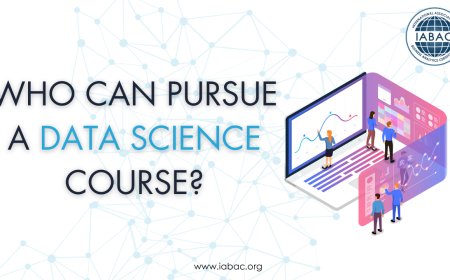The Power of Data Scientist Certifications
Unlock career opportunities with data scientist certifications. Discover the power of accredited programs in mastering data analytics, and machine learning.

The explosive growth of data, its growing complexity, and the fast development of technology developments like artificial intelligence and machine learning are driving a rise in the need for data scientists. Companies in all kinds of industries look for data-driven insights to provide them with a competitive advantage in the market today. Still, there is a shortage of qualified workers despite this present need, which increases the value of data scientist certification and makes them highly sought-after assets in the workforce.
The important function data scientists play in reading important insights from large and complex data sets to inform strategic decisions across businesses is the primary driver of this high demand. The need for competent data scientists is expected to grow as companies prioritize data-driven strategies, providing those with the requisite experience with great job opportunities.
What is Data Scientist
-
A data scientist is a specialist who works with large data sets to tackle challenging issues and find effective solutions. To derive meaning from data, they combine programming, statistics, data analysis, and subject expertise. Data scientists gather, purify, and arrange information from lots of sources, including spreadsheets, databases, and the Internet.
-
Data scientists use methods like statistical analysis, machine learning, and data visualization to find patterns, trends, and correlations once they have the data. Businesses can use these insights to spur innovation, simplify processes, and make well-informed decisions. A data scientist might, for instance, examine consumer information to spot purchasing trends and suggest niche marketing strategies.
-
Data scientists play a role in developing predictive models that project future results based on past data. These models can be applied to many different tasks, such as forecasting stock prices and predicting customer attrition. Also, data scientists must use reports, presentations, and visualizations to explain their findings to stakeholders who are not technological.
The growing demand for data scientists
-
Data Everywhere: Data is everywhere in the digital age, just like air is. We consistently provide businesses with useful information every time we use technology—from online purchasing to web browsing. But to successfully navigate this large ocean of data and derive valuable insights that inform business choices, one needs to be a qualified professional.
-
Smart Business Moves: Businesses understand how data can be used to make informed decisions, whether they are about improving products, marketing, or operational efficiency. Data scientists are experts at using advanced techniques to extract useful insights from difficult data. They identify patterns, unearth chances, and direct calculated decisions for successful businesses.
-
Tech Advances: As technology advances, data science swiftly changes, bringing with it new tools and algorithms. These developments allow data scientists to take on challenging issues and extract more insightful information from data. Data scientists must stay up to date on the newest technological developments to offer creative solutions and produce measurable business outcomes that are highly appreciated by businesses.
-
Problem Solvers: Comparable to modern detectives, data scientists use data as pointers to solve corporate riddles. They are adept at solving problems, whether it is identifying periods of low sales, predicting attrition, or optimizing pricing. Equipped with curiosity and astute questioning, they uncover insights to propel expansion and revenue through data-driven decision-making.
-
Industry Diversity: Data scientists are in high demand in many types of sectors, including manufacturing, healthcare, finance, and retail. They do retail inventory optimization, identifying banking scams, patient record analysis in healthcare, and more. Professionals with data science expertise can progress in their professions and have a big effect with a variety of opportunities.
the increasing amount of data available, the necessity of making well-informed decisions, technology developments, the ability of data scientists to solve problems, and the variety of applications across industries all contribute to the growing demand for data scientists. The need for qualified data scientists will only grow as more businesses come to understand the importance of insights obtained from data.
Is it worth spending your time and money on a data scientist certification?
-
Relevance to Career Goals:
Consider how applicable a certification is to your professional objectives before obtaining it. particular industries or occupational categories may be more suitable for particular certificates than for others. Find out if the certification's particular knowledge and skill set matches your desired career path by studying it.
-
Industry Recognition:
Think about the certification's standing and acceptance in the field. Certain certificates offer you a competitive advantage in the job market and are highly respected by companies. Seek certificates that have a history of producing qualified experts or that are supported by respectable organizations.
-
Cost vs. Benefits:
Compare the possible benefits of earning the certification with the expense of doing so. This covers the time and effort needed to prepare for the certification exam or training program in addition to the actual cost of the program. Examine this investment in light of the possible pay increases or chances for career advancement that come with earning the certification.
-
Skill Enhancement:
Determine whether earning the certification will enable you to develop or get important abilities that are in demand in the data science industry. Seek credentials that address practical, hands-on expertise with instruments and methods that are frequently employed in the field. Think about how learning these talents may improve your current expertise and increase your marketability to employers.
-
Networking Opportunities:
A few certification programs give participants access to private job boards and communities, as well as networking opportunities with professionals in the field. Think about how these networking events might help you make connections with possible employers or further your career in other directions.
The increasing amount of data, its rising complexity, and the quick progress of technologies such as artificial intelligence and machine learning are driving the need for data scientists. Companies in lots of sectors have difficulty identifying skilled employees as they look to data-driven insights to gain an advantage over their competitors. It is the responsibility of data scientists to drive strategic decisions, promote innovation in all kinds of industries, and extract useful insights from large, complicated data sets. There will be a large need for qualified data scientists as the significance of data-driven strategies grows, which will create possibilities for those with the necessary skills.











































